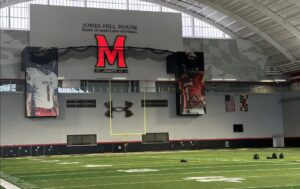Evolving Landscape of Sports Betting
The relationship between professional football and sports betting has undergone a fundamental transformation since 2018. The NFL’s stance has shifted from maintaining distance to embracing regulated partnerships, marking a significant change for athletes as well as both sports and betting experts. This evolution brings opportunities and challenges, requiring sophisticated approaches to protect the game’s integrity while acknowledging betting as part of the modern sports experience. Sports Handicappers Guide along with NFL betting tutorials are meant to serve as guidance in order for NFL participants to navigate in the unstable paradigm.
Integrity Protection Framework
The NFL has developed comprehensive measures to safeguard game integrity in response to the growing betting market. These protective measures extend beyond simple prohibitions, encompassing sophisticated monitoring systems and partnerships with betting operators. The league’s approach recognizes that effective integrity protection requires adaptation to emerging technologies and betting patterns while maintaining traditional oversight methods.
The NFL’s integrity framework combines preventive measures with active monitoring and enforcement capabilities. This multi-layered approach recognizes that effective integrity protection requires coordination across multiple stakeholders, including teams, players, officials, and betting operators. The framework emphasizes early detection and prevention while maintaining capability for rapid response to potential integrity threats.
High-Profile Cases and Policy Implementation
The Calvin Ridley case in 2022 marked a pivotal moment in NFL integrity management, illustrating both the effectiveness of monitoring systems and the complexities of policy enforcement. Ridley’s suspension, stemming from wagers placed while away from team activities, demonstrated the NFL’s commitment to maintaining clear boundaries. This case particularly highlighted the challenges of managing integrity in an era where betting accessibility has increased dramatically through mobile platforms and widespread legalization.
The league’s response to high-profile incidents has evolved to reflect changing market realities. Recent cases have prompted modifications to educational programs and enforcement protocols, emphasizing prevention alongside punishment. These adaptations reflect growing recognition that integrity management requires a nuanced approach balancing deterrence with education and support.
Technological Innovation in Integrity Management
Modern integrity protection extends beyond traditional concerns about match-fixing to address newer challenges arising from the expansion of betting markets. These include managing insider information risks, preventing unauthorized use of proprietary data, and maintaining clear separation between gaming activities and game-related decisions. The framework continues to evolve as new betting products and technologies emerge.
The evolution of monitoring technology reflects the changing nature of sports betting markets. Modern systems must process data from traditional pre-game markets alongside in-play betting and increasingly popular player proposition markets. This expanding scope presents both opportunities and challenges. While more data points enable more comprehensive monitoring, they also increase the complexity of analysis and the potential for false positives.
Industry Partnerships and Risk Management
Strategic partnerships between the NFL and betting operators have created a collaborative approach to integrity management. These relationships enable information sharing while maintaining necessary boundaries between league operations and betting activities. Betting operators’ participation in integrity monitoring provides additional layers of protection through market expertise and specialized monitoring capabilities.
The partnership model has evolved to include sophisticated data sharing agreements and joint management requires cooperation between sports organizations and betting operators while maintaining clear operational separation. The success of these partnerships depends heavily on maintaining balance between commercial interests and integrity requirements.
This collaborative approach extends to relationships with integrity service providers, whose specialized expertise complements internal monitoring capabilities. These partnerships have proven particularly valuable in addressing cross-border challenges and emerging integrity threats. While such relationships demonstrate promising results, they also highlight the ongoing need for careful management of potential conflicts and clear delineation of responsibilities.
Educational Initiatives and Cultural Change
Professional sports organizations face the challenge of maintaining traditional values while adapting to new market realities. The NFL’s educational programs reflect this balance, focusing on helping players and staff understand both the rules and underlying rationale of integrity policies. These initiatives acknowledge that effective integrity protection requires cultural buy-in alongside formal compliance.
Market Impact and Future Considerations
The success of integrity measures significantly influences public confidence in both the sport and betting markets. The NFL’s approach to managing this relationship continues to evolve, with ongoing adjustments to policies and procedures reflecting new market developments. This dynamic environment requires constant evaluation of integrity measures against emerging challenges.
The intersection of professional football and sports betting represents a complex landscape where commercial opportunities must be balanced against integrity risks. The NFL’s approach demonstrates that managing these risks requires a combination of clear policies, advanced technology, and cultural adaptation. The league’s experience offers valuable insights into how professional sports can maintain integrity while engaging with regulated betting markets.
As sports betting continues to expand, the effectiveness of integrity measures will likely face new challenges. The NFL’s ongoing efforts to refine and strengthen its approach suggest that maintaining game integrity requires constant vigilance and adaptation. The league’s experience indicates that successful integrity management demands a comprehensive strategy that combines technological solutions with human oversight and cultural values.
The future of sports integrity management will likely see further evolution as betting markets mature and new technologies emerge. The NFL’s current framework provides a foundation for addressing these challenges while maintaining the essential trust of fans and stakeholders. This balance between embracing new market realities and protecting core sporting values remains central to the league’s approach to integrity management.










